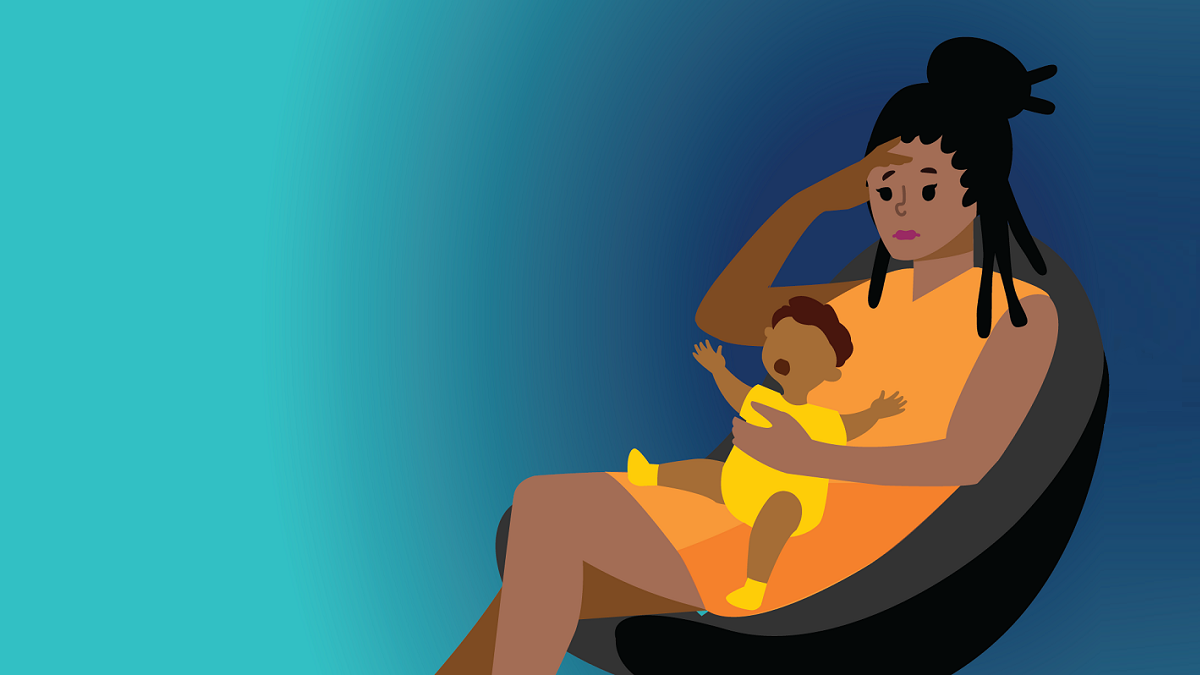Key points
- Depression among women is common and treatable.
- If you think you have depression or postpartum depression, seek treatment from your health care provider as soon as possible.
Symptoms
Depression
Depression interferes with daily life and may last for weeks or months at a time. Most people, even those with the most severe forms of depression, can get better with treatment.
How often symptoms occur, how long they last, and how intense they may feel can be different for each person. Symptoms of depression can include a lasting sad, anxious, or "empty" mood. Symptoms can also include a loss of interest in hobbies and activities and a lack of energy. Additional symptoms can be found at Mental Health Conditions: Depression and Anxiety.
Postpartum depression
Postpartum depression is depression that occurs after having a baby.

Feelings of postpartum depression are more intense and last longer than baby blues. Baby blues describes the worry, sadness, and tiredness many women experience after having a baby. Baby blues symptoms typically resolve on their own within a few days.
The symptoms of postpartum depression may include crying more often than usual, feeling angry, or feeling distant from your baby. Other symptoms may include doubting your ability to care for the baby. Find more symptoms at Moms' Mental Health Matters.
When to talk to your doctor
Treatment
Depression is treatable, and most people get better with treatment. The first step to seeking treatment is to talk to your health care provider. Ask your health care provider for a referral to a mental health professional.
After your visit, follow up on all referrals and treatment. When discussing medications with your provider, let her or him know if you are pregnant, thinking about becoming pregnant, or breastfeeding. You and your provider can decide if taking medicine while pregnant or breastfeeding is right for you. Learn more about seeking treatment for depression.
What to do in a crisis
If you or someone you know is in crisis, tell someone who can help immediately. In crises, call 911, call or text 988, or call or text 1-833-9-HELP4MOMS.
Call 911 or go to the nearest hospital emergency department for emergency medical treatment.
Call or text 988, or chat at 988lifeline.org to reach the Suicide and Crisis Hotline.
Call or text 1-833-TLC-MAMA (1-833-852-6262) to reach the National Maternal Mental Health Hotline.
Don't be alone. Don't leave another person alone if she or he is in crisis.
Depression rates and risk factors
A CDC study shows about 1 in 10 women of reproductive age in the United States reported symptoms suggesting an episode of recent major depression.
Depression rates during and after pregnancy
An analysis by CDC found the rate of depression diagnoses at delivery increased. The rate was seven times higher in 2015 than in 2000. CDC research shows about 1 in 8 women with a recent live birth reported symptoms of postpartum depression.
Risk factors for depression during and after pregnancy
Previous or family history of depression and little or no social support may put some women at higher risk. Learn more at Moms' Mental Health Matters.
